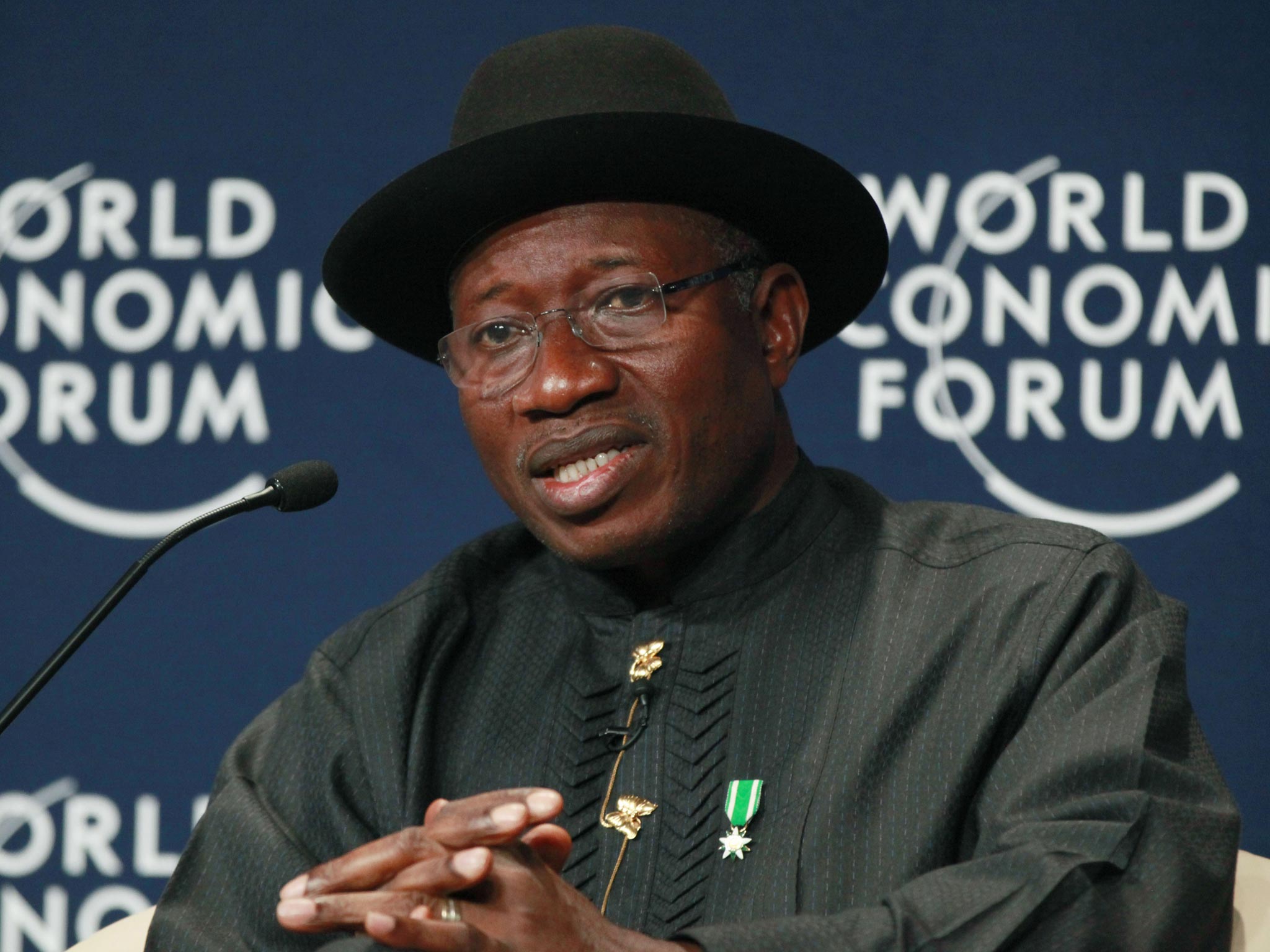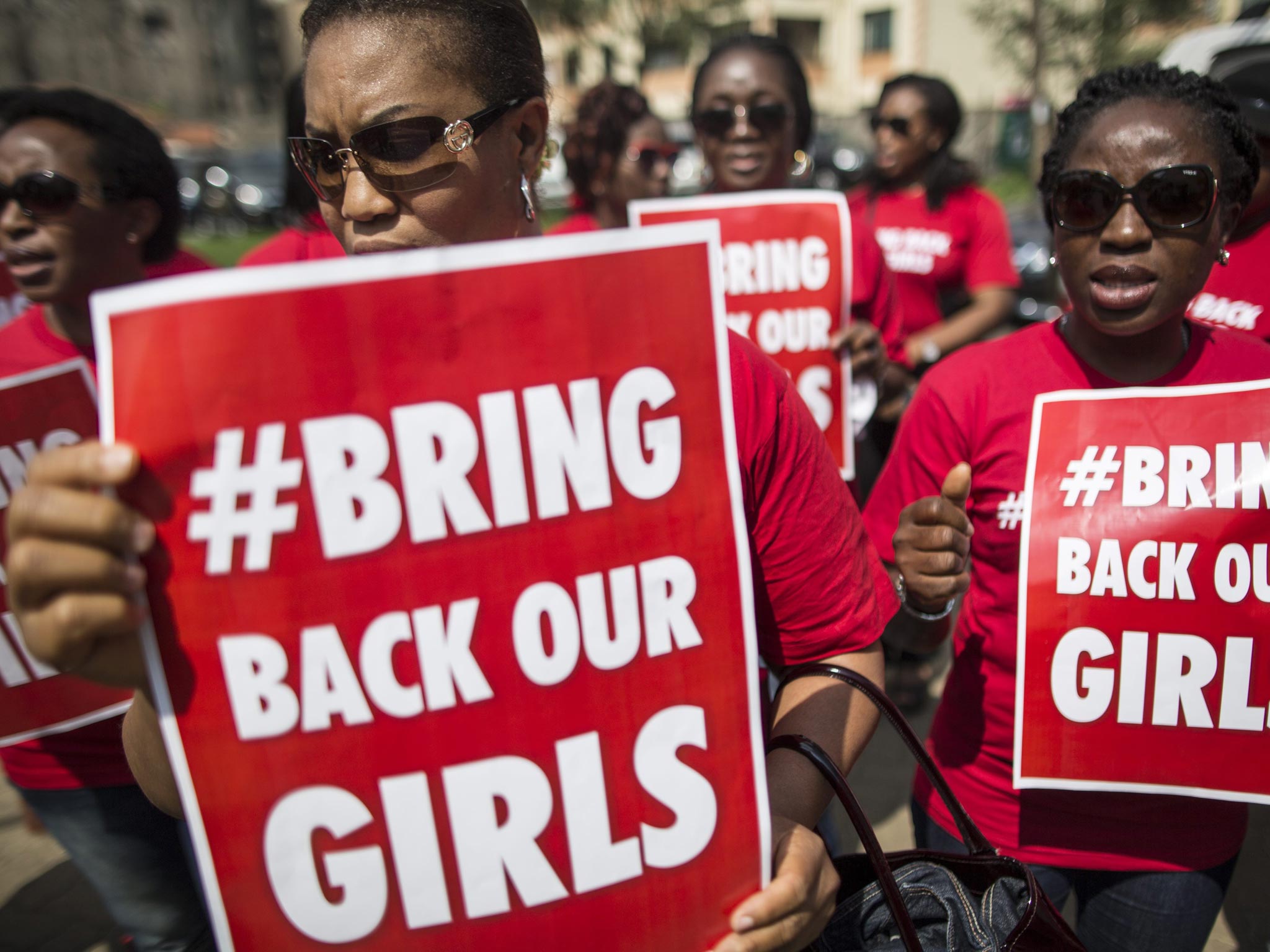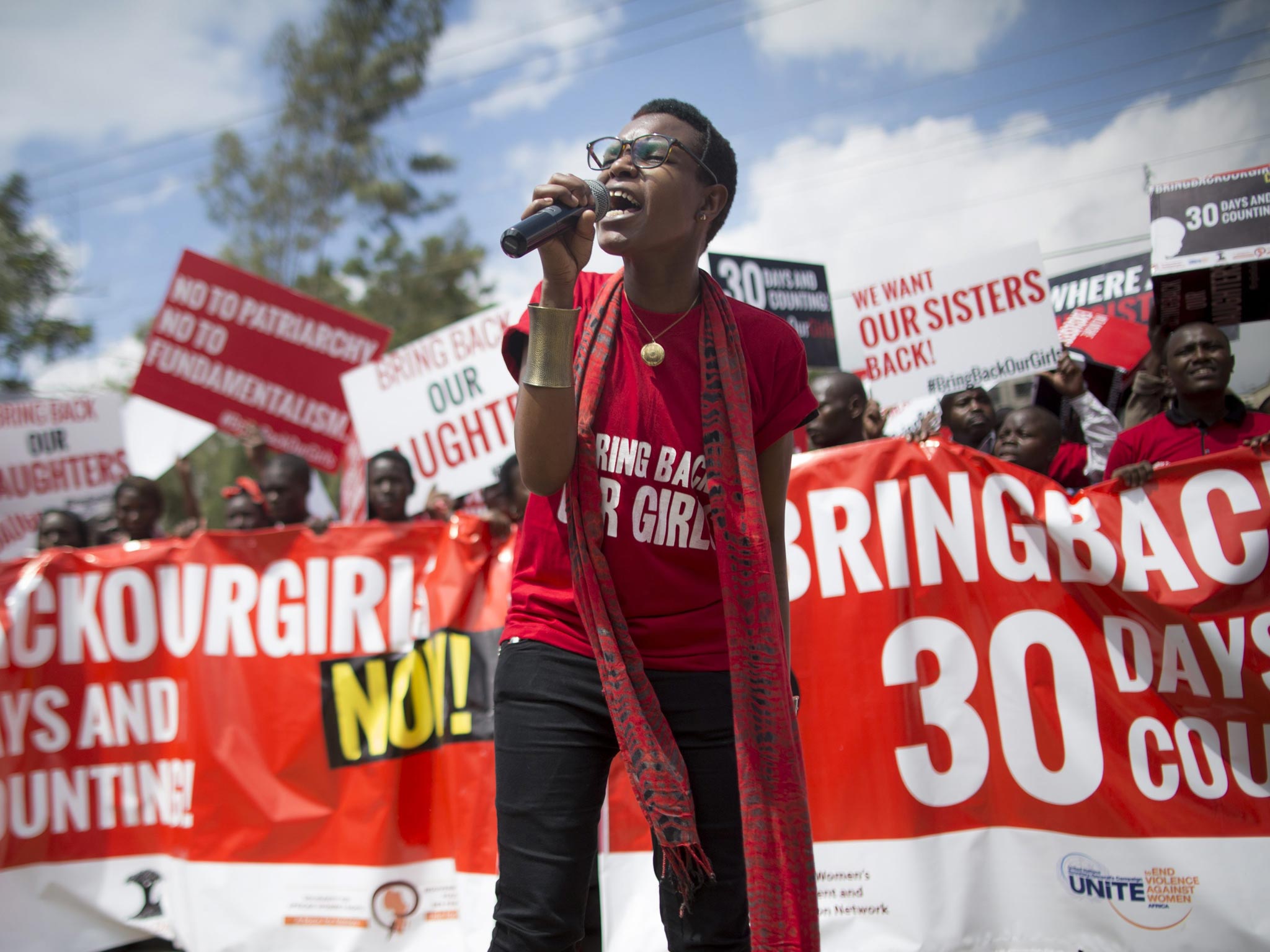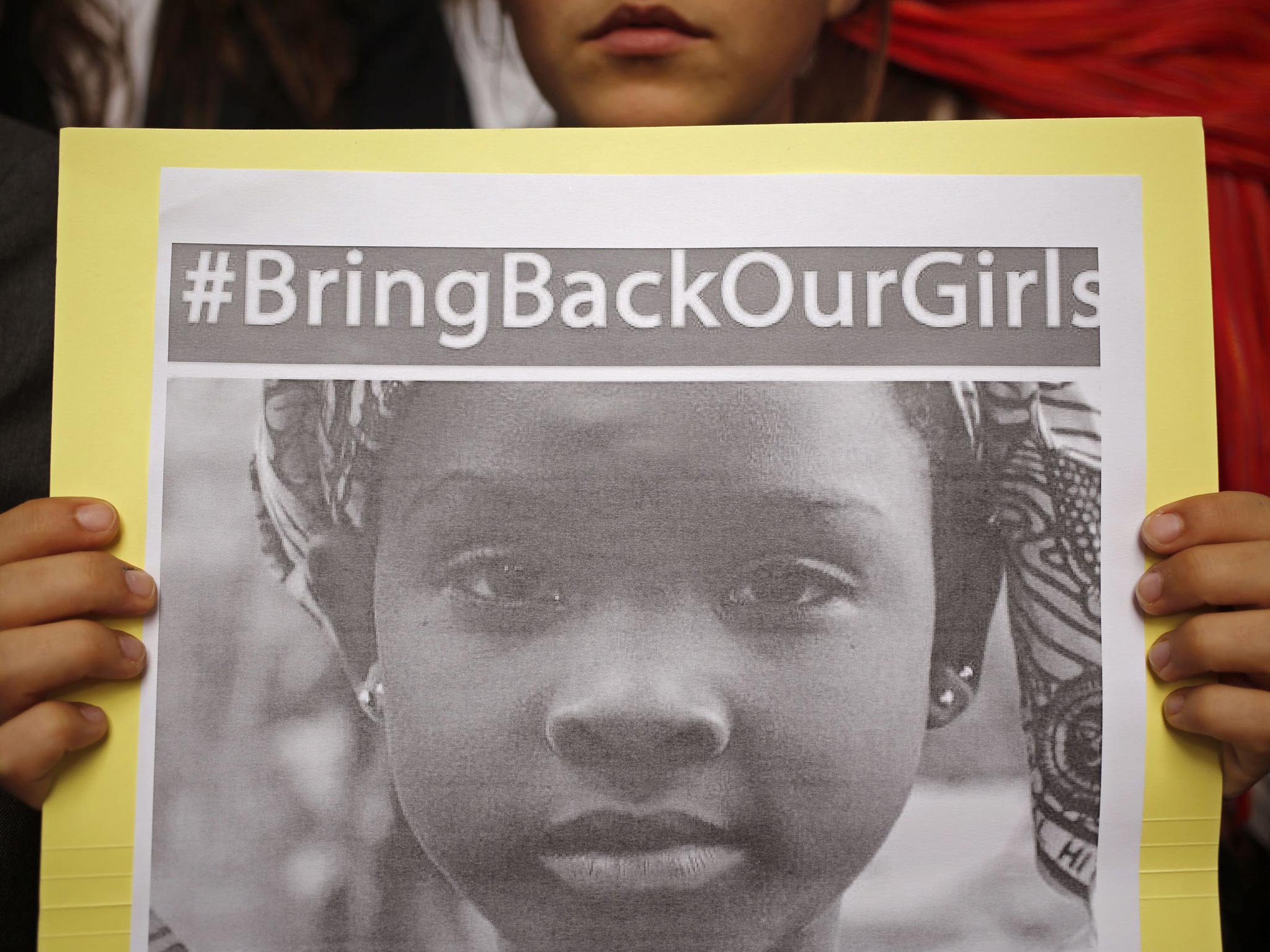Nigeria schoolgirls kidnap: Anger as President Goodluck Jonathan snubs grieving families
Leader cancels visit to meet parents in Chibok amid safety fears

Your support helps us to tell the story
From reproductive rights to climate change to Big Tech, The Independent is on the ground when the story is developing. Whether it's investigating the financials of Elon Musk's pro-Trump PAC or producing our latest documentary, 'The A Word', which shines a light on the American women fighting for reproductive rights, we know how important it is to parse out the facts from the messaging.
At such a critical moment in US history, we need reporters on the ground. Your donation allows us to keep sending journalists to speak to both sides of the story.
The Independent is trusted by Americans across the entire political spectrum. And unlike many other quality news outlets, we choose not to lock Americans out of our reporting and analysis with paywalls. We believe quality journalism should be available to everyone, paid for by those who can afford it.
Your support makes all the difference.At first light this morning, the parents of Nigeria’s missing schoolgirls left their homes and made the journey to the burnt remains of the Chibok school where their daughters were captured more than a month ago.
They had come to see President Goodluck Jonathan, whose failure to appear in the village where more than 300 girls were taken by Islamic extremists had become a symbol of how this north-eastern outpost has felt neglected by central government.
By 8am relatives of the abducted pupils – as well as some of the young women who managed to escape Boko Haram – were gathered at Chibok government secondary school in Borno, waiting expectantly for the man who they thought had forgotten them. But then, after more than an hour of sitting around, a call came through to the school’s principal, Asabe Kwambura. Jonathan would not be coming.
“We were all prepared,” Ms Kwambura told The Independent. “Some will be angry that he did not come. We had the parents and the students all gathered to see him and then we get the information to say he is not coming. We understand he was called by other foreign countries to discuss the missing students.”
The apparent explanation – one which was not well-received by parents – was that the region was too unsafe for a presidential visit.
Insurgents killed at least four soldiers in an ambush near the village on Monday and a senior government source said that the President was advised not to go ahead for security reasons.
Instead, he went straight to Paris ahead of Saturday’s summit of West African leaders. The meeting is an attempt to improve co-operation with neighbouring Cameroon Chad, Benin and Niger in the fight against Boko Haram.
As a Christian from the south of the country, Jonathan has been accused of being indifferent to the fate of the predominantly Muslim north which has had to tolerate violent clashes with Islamic extremists for the past five years.
His conspicuous absence from Chibok at a time when the fate of the kidnapped schoolgirls has attracted international concern has only cemented this feeling.
Pastor Enoch Mark, who lost two daughters in the kidnapping, said of the president’s cancellation: “I’m really, really disappointed by his failure to come to us”.

Pastor Mark was in Abuja when he heard the visit had not taken place. “The school is burnt to ashes,” he said. “The President needs to see the damage that has been done to the school and the town. People are highly annoyed about it because he’s our head of state.”
In total, more than 300 students were taken from the Chibok Government Girls Secondary School on 15 April. Police say 53 managed to escape and 276 remain in captivity.
The girls were initially taken to Sambisa Forest, an area twice the size of Rwanda. It is thought they may still be there as it is a known Boko Haram hideout. Its vegetation also fits with that visible in the background of a video released by the group on Monday that showed around 130 captured girls.
Tsambido Hosea Abana, 51, has three nieces and two cousins among the missing girls. The civil servant has been running rallies for the abducted schoolgirls in Abuja, where he is chairman of the Chibok Community.
“As of now I don’t know what the government is doing,” he said, “I want the girls to be released.”
“When I heard the news I cried. At first I thought ‘they are going to kill them’. I cried bitterly for the whole week. But now there’s hope after seeing them on television.”

Although the sight of some of the girls in the video released by Boko Haram on Monday has given him relief, he only spotted one cousin among them.
“Since I have seen some faces on the screen I believe they will come back alive. That is my prayer. Although I have five relatives among the missing I’ve seen only one, my cousin, on the video.”
Allen Manasseh, a community leader whose younger sister, Maryamu Wavi, is among the missing, said the President’s protracted absence was having political consequences.
“His popularity has declined. This community in Chibok is supportive of his party. We’ve been voting for his party for the past 12 years. But now, people are really angry. What is the reason for supporting a political party that can’t come to your aid in moments of grief?”
He said that despite this he was behind the government’s decision not to agree to Boko Haram’s demand for released prisoners in exchange for girls. “Why should there be a prisoner swap with innocent girls? It’s a very bad signal to the nation if that’s done”, he said.

“What we should be saying is they should be compelled to release these girls unconditionally.”
Like Mr Abana, Mr Manasseh could not see his relative in the video, amid ongoing confusion over whether the remainder of the girls are still in the country – or even still alive.
“I could not recognise my sister in the video,” said Mr Manasseh. “Those that escaped told us they selected girls that looked older and they were put ahead of the smaller ones. My sister is a bit plumpy, so I suspect she’s one of those [who] was sent further away.”
The President’s failure to appear will not improve morale in Nigeria’s army, which some reports suggest is now near mutiny at a time when it is supposed to be intensifying its efforts in the region.
Troops complain that they are outnumbered and outgunned by the insurgents, are not properly paid and have to scavenge for food.
Funds are also limited in Chibok. Ms Kwambura does not know how she will educate the girls that remain, or for how long they will be safe from Boko Haram.
Join our commenting forum
Join thought-provoking conversations, follow other Independent readers and see their replies
Comments